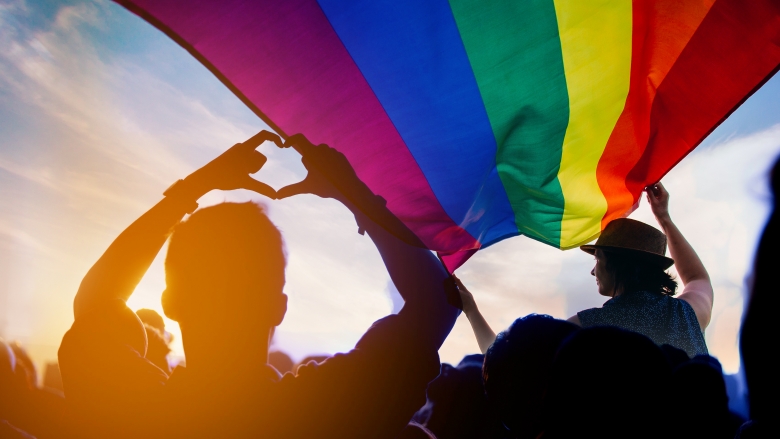Exclusion based on sexual orientation and gender identity (SOGI) is costly – to both the individuals concerned as well as a country’s economy and society as a whole. The COVID-19 pandemic has highlighted the urgent need to address the resulting disparities and the support countries build more inclusive and resilient societies.
According to a joint World Bank and Equal Rights Association (ERA) for Western Balkans and Turkey report, while COVID-19 can affect anyone, we know it disproportionately impacts vulnerable groups more than others—including LGBTI people. Pre-existing inequalities have been exacerbated by the pandemic, making it more difficult for those from vulnerable groups to access essential services, especially health.
"The assessment revealed convincingly that this pandemic has done nothing but exacerbate and deepen the already huge disparities between the general population and LGBTI people,” said Amarildo Fecanji, Executive Director of ERA. “The most vulnerable members of our community, in particular trans and queer folks, as well as those belonging to more than one minority are again paying the biggest price. This, coupled with the general negative attitudes and the government's focus on combating the pandemic, means that the socio-economic and political situation of LGBTI people could be endangered and potentially far worse in the next few years.”
Access to essential health services
Since the onset of the pandemic, LGBTI people have faced increased barriers to accessing essential health services.
A survey of ERA member organizations, Assessing the Impact of COVID-19 Pandemic Response on the LGBTI+ Community in the Western Balkans, found that the measures to combat COVID-19 have resulted in limited access to HIV/AIDS treatment and less testing, with the potential that HIV infections can grow. According to the survey, “as many as 38.7 percent of the member organizations claim that LGBTI people living with HIV/AIDS have faced challenges in receiving their regular health services during this period.” According to qualitative research done in Serbia, 20.8 percent of interviewed LGBTI people have had trouble accessing AIDS medication, other forms of long-term therapy, and/or mental health–related services since the beginning of the pandemic.
Sexual and gender minorities are among the groups most at risk to COVID-19 morbidity and mortality due to underlying conditions such as HIV/AIDS (sexual and gender minorities are among those with highest HIV prevalence in most World Bank client countries), which can contribute to COVID-19 related complications.


